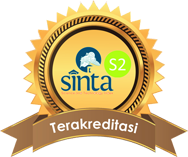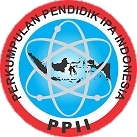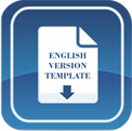Analysis of Questions in Chemistry Textbook Based on Critical Thinking Ability
DOI:
https://doi.org/10.15575/jtk.v7i1.4973Keywords:
chemistry text book, critical thinking ability, question analysisAbstract
Chemistry textbooks' questions are important in improving students' thinking skills. Various types of questions are developed, but the effectiveness of these questions in supporting student success is something that is not expressed enough. This study aims to determine aspects of critical thinking skills developed in questions in the Chemistry High School textbook. The research method used is a descriptive method and multistage sampling technique. There are six books analyzed. The research instrument used was in the form of observation sheets classifying questions based on indicators of critical thinking skills. The results showed that the questions developed in Chemistry textbooks were analyzed based on critical thinking skills, including aspects of making simple explanations with a percentage of 28.8%, building basic skills of 20.3%, concluding at 45.8%, giving further explanations of 3.4%, and set strategy and tactics of 1.7%. The questions developed are dominated by concluding questions. Thus, it can be concluded that the questions in the Chemistry High School textbook have not been developed evenly on the five aspects of critical thinking.
References
Anderson, L. W., Karathwohl, D., Airasian, K., Cruikshank, A., Mayer, R., Pintrich, P., Wittrock, M. (2001). A taxonomy for learning, teaching and assessing: A revision of Bloom's taxonomy of educational objectives. New York: Longman.
Aslan, C. (2011). High Level Thinking Education In Mother Tongue Textbooks In Turkey And France. The Journal of International Social Research, 4(16), 29-37. Retrieved from https://www.academia.edu/23902598/HIGH_LEVEL_THINKING_EDUCATION_IN_MOTHER_TONGUE_TEXTBOOKS_IN_TURKEY_AND_FRANCE
Averkieva, L., Chayka, Y., & Glushkov, S. (2015). Web Quest as a Tool for Increasing Students’ Motivation and Critical Thinking Development. Procedia - Social and Behavioral Sciences, 206, 137–140. https://doi.org/ 10.1016/j.sbspro.2015.10.042
Birgili, B. (2015). Creative and Critical Thinking Skills in Problem-based Learning Environments. Journal of Gifted Education and Creativity, 2(2), 71-80. https://doi.org/10.18200/JGEDC.2015214253
Cahyono, B. (2017) Analisis Keterampilan Berpikir Kritis dalam Memecahkan Masalah Ditinjau Perbedaan Gender. Aksioma, 8 (1), 50-64. https://doi.org/10.26877/aks.v8i1.1510
Che, F. S. (2002). Teaching Critical Thinking Skills in a Hong Kong Secondary School. The Institute of Asia Pacific Education Development, Vol. 3, No. 1, 83-91.
https://doi.org/10.1007/BF03024923
Ennis, R. H. (1985). A logical basis for measuring critical thinking skills. Educational leadership, 43(2), 44-48. Retrieved from https://pdfs.semanticscholar.org/80a7/c7d4a98987590751df4b1bd9adf747fd7aaa.pdf.
Ennis, R. H. (2011). The nature of critical thinking: An outline of critical thinking dispositions and abilities. University of Illinois, 2(4), 1-8. Retrieved from http://www.criticalthinking.org
Fahim, M., & Khatib, S. (2013). The effect of applying critical thinking techniques on students’ attitudes towards literature. International Journal of Applied Linguistics and English Literature, 2(1), 80-84. https://doi.org/10.7575/ijalel.v.2n.1p.80
Frandeska, W. (2014). Analisis pertanyaan buku teks fisika yang digunakan di Kota Tangerang Selatan berdasarkan kemampuan berpikir kritis pada konsep dinamika partikel. Skripsi, Retrieved from Repository Universitas Islam Negeri Syarif Hidayatullah Jakarta.
Haryati, E., Andayani, E., & Al Idrus, S. W. (2019). Analisis Minat Belajar dan Kemampuan Awal Keterampilan Berpikir Kritis Siswa pada Materi Minyak Bumi. Jurnal Pijar MIPA, 14(3), 128-134. https://doi.org/10.29303/jpm.v14i3.1297
Hatcher, D. L., & Spencer, L. A. (2005). Reasoning and Writing: From Critical Thinking to Composition. 3rd. ed. Boston: American Press.
Kartimi & Liliasari. (2012). Pengembangan Alat Ukur Berpikir Kritis pada Konsep Termokimia untuk Siswa SMA Peringkat Atas dan Menengah. Jurnal Pendidikan IPA Indonesia, 1(2), 2126. https://doi.org/10.15294/jpii.v1i1.2008
Khoirunnisa, F. & Sabekti, A. W. (2020). Profil Keterampilan Berpikir Kritis Siswa pada Materi Ikatan Kimia. Jurnal Pendidikan Kimia Indonesia, 4 (1), 26-31. https://doi.org/10.23887/jpk.v4i1.25635
Margono, S. (2009). Metodologi Penelitian Pendidikan. Jakarta: Rineka Cipta.
Mukminin, A., Habibi, A., Prasojo, L. D., Idi, A., & Hamidah, A. (2019). Curriculum reform in Indonesia: moving from an exclusive to inclusive curriculum. CEPS Journal, 9(2), 53-72. https://doi.org/10.26529/cepsj.543
Qing, Z., Xiang, W., & Linna, Y. (2007). A Preliminary investigation into critical thinking of urban Xi'an high school students. Front. Educ. Volume 2, Issue 3, 447–468. https://doi.org/10.1007/s11516-007-0036-5
Sharadgah, T. (2014). Developing critical thinking skills through writing in an internet-based environment. Society for Information Technology & Teacher Education International Conference, 2178-2185. Association for the Advancement of Computing in Education (AACE). Retrieved from https://www.learntechlib.org/p/131110/
Sula, A., Lama, I. N., & Gjokutaj, M. (2011). Improving The Quality Of Learning Through The Questions Of Texts. Problems of Education in the 21st Century, 36, 106. Retrieved from http://journals.indexcopernicus.com/abstract.php?icid=970335
Sunardjo, R. N., Yudhianto, S. A., & Rahman, T. (2016). Analisis implementasi keterampilan berpikir dasar dan kompleks dalam buku IPA pegangan siswa SMP kurikulum 2013 dan implementasinya dalam pembelajaran. Proceeding Biology Education Conference, 11(1) 133-144. Retrieved from http://file.upi.edu/Direktori/FPMIPA/JUR._PEND._BIOLOGI/196201151987031-TAUFIK_RAHMAN/%28jurnal%29%202016-PROSID%20SEMNAS%20UNS.2016.%20BERPIKIR%20DASR%20DN%20KOMPL.%209585-20373-1-SM.pdf
Visande, J. C. (2014). Developing critical thinking skills among education students through formative education. International Journal for Cross-Disciplinary Subjects in Education (IJCDSE), 5(4), 1783-1789. https://doi.org/10.20533/ijcdse.2042.6364.2014.0248
Downloads
Published
Issue
Section
License
Authors who publish with this journal agree to the following terms:
- Authors retain copyright and grant the journal right of first publication with the work simultaneously licensed under a  Creative Commons Attribution-ShareAlike that allows others to share the work with an acknowledgement of the work's authorship and initial publication in this journal.
- Authors are able to enter into separate, additional contractual arrangements for the non-exclusive distribution of the journal's published version of the work (e.g., post it to an institutional repository or publish it in a book), with an acknowledgement of its initial publication in this journal.
- Authors are permitted and encouraged to post their work online (e.g., in institutional repositories or on their website) prior to and during the submission process, as it can lead to productive exchanges, as well as earlier and greater citation of published work (See The Effect of Open Access).








